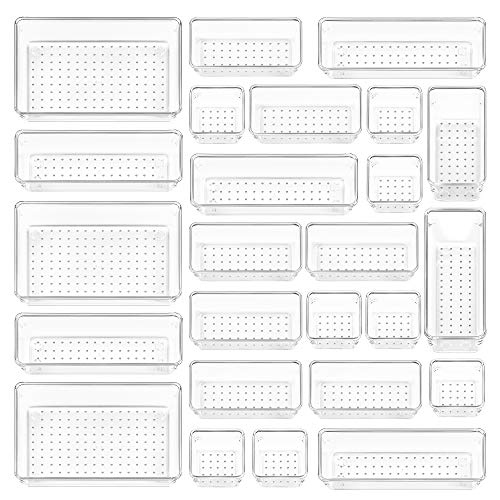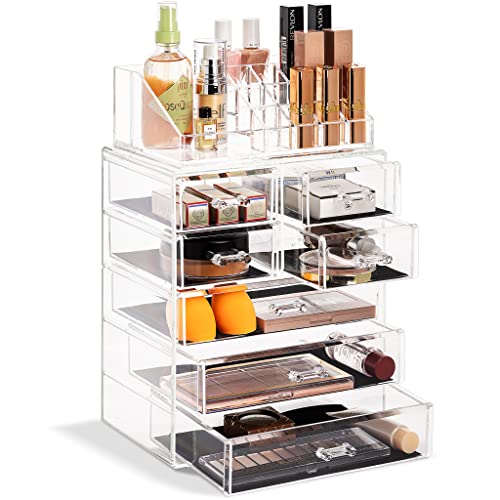- Joined
- May 24, 2006
- Messages
- 7,538
- Reaction score
- 38
Be Very Skeptical!
If you have oily skin, acne, or both, you may have heard of something called the "oil-cleansing method," either from a friend or from browsing the Internet. In that case, you're probably wondering whether the oil-cleansing method is finally the solution to your shiny face, or perhaps an end to constant breakouts. In short, the answer is a resounding "No!"
Of course, you can test the oil-cleansing method yourself, but before you jump into what is really little more than a skin-care fad and a waste of time, here are the facts you need to make an informed decision.
What Is the Oil-Cleansing Method?
The oil-cleansing method is posted on the "natural" skin-care/health website www.theoilcleansingmethod.com. They passionately recommend it and provide extensive rationalizations for it as the only way to clean oily, blemish-prone skin.
The oil-cleansing method is a recipe for a mixture of castor oil and other plant oils. You mix it up yourself, rub it on your face, and then wipe it off using steam and hot water. According to the site, you're supposed to meditate during cleansing. (Honest, they really do state that.)
This cleansing method is based on the chemistry rule of "like dissolves like," which means that one substance can dissolve or break down substances similar to it. That's the rationale they use to explain how the oil-cleansing method mixture, which is composed of oils (in this case plant oils) dissolves the oils on your skin and stops more oil from being produced, all because some oils are similar to other oils.
Unfortunately, that principle does not hold here, and so the method doesn't work. In fact, there are so many things wrong with their rationale, it's almost mind numbing.
Why This Method Doesn't Work for Oily Skin
The flaw in their logic is that it assumes oily, blemish-prone skin is simply oil on the surface, when in reality it is far more complicated than that.
Your skin produces oil in response to the hormones your body produces. The fact that this excess oil is being generated all the time explains why your skin is greasy throughout the day.
Dissolving oil from the surface of your skin cannot affect what is happening below the surface, inside the pore, or in your body, where these hormones are generated. Using cleansing oil may remove facial oil from the surface of your skin, but that's about all it can do.
A Few More Misleading Ideas to Clear Up
Aside from presenting the idea that oil dissolves oil, the website for the oil-cleansing method also makes the statements below. Our response follows each statement, and explains why the information is either wrong or misleading:
• MYTH: Cleansers strip skin of oils, leaving it tight and irritated.
FACTS: Not all "traditional" water-soluble cleansers leave skin tight and irritated. Using the term "stripping" makes it sound like water-soluble cleansers are ripping oil from your skin and causing damage. The truth is that gentle water-soluble cleansers are simply dissolving the oil, just like the oils in the oil-cleansing method, but in a different way.
• MYTH: Drinking water will "flush toxins" from the body, improving oily and acne-prone skin.
FACTS: There are no toxins in your body that it can't flush out on its own through the body's natural processes. It isn't bad to drink lots of water, but it won't change how much oil your pores produce. And your skin's oil is not a toxin; it actually has some amazing benefits for your skin. Drinking water cannot affect oil-regulating hormones, either.
• MYTH: The combination of oils and hot steam used by the oil-cleansing method will "deep-clean" skin in a way that no other product can.
FACTS: Hot steam is irritating in every way possible, and irritation stimulates oil production directly in the pore and makes pimples look even redder. Using hot steam on a regular basis also can cause small blood vessels in your skin to rupture, over time creating a network of surfaced red capillaries.
• MYTH: Dissolving oil on the surface of skin will change how your pores produce oil, which will lead to clear skin.
FACTS: How such a process could be possible isn't explained, and the company doesn't provide any research on the website. Real research shows that applying potent irritants to the skin's surface can trigger more oil to be produced at the base of the pore, but simply removing the surface oil with a gentle cleanser (oil-based or not) isn't going to alter how oil is produced.
If Only Fixing Oily Skin Was This Simple…
Cleansing skin with oil isn't a new concept, and there isn't anything wrong with using an oil to remove makeup, but it doesn't do anything more than serve as a greasy-feeling cleanser. If the oil-cleansing method were all it took to get rid of oily skin and blemishes, every company would be selling the routine, because it isn't exactly rocket science to reproduce.
But, given the complicated physiology of skin (it is the largest organ of the body) and the complex nature of acne and oily skin, a single cleansing step cannot begin to address all, or even a small portion, of the associated problems.
To be fair, experimenting with the oil-cleansing method (minus the steaming) won't hurt your skin. At worst, it will just waste your time and exacerbate breakouts. But after that, you should follow recommendations based on what published research has shown can effectively treat oily, blemish-prone skin. That includes gentle, water-soluble cleansers, an exfoliant formulated with salicylic acid, and a topical disinfectant with benzoyl peroxide.
Source:
http://www.cosmeticscop.com/BULLETIN/041211-full.htm?utm_source=bronto&utm_medium=email&utm_term=Read+More+%C2%BB&utm_content=Oil-Cleansing+Method+for+Oily+Skin%3F&utm_campaign=04.12.11+Beauty+Exclusives
...........................................................................................................................
If you have oily skin, acne, or both, you may have heard of something called the "oil-cleansing method," either from a friend or from browsing the Internet. In that case, you're probably wondering whether the oil-cleansing method is finally the solution to your shiny face, or perhaps an end to constant breakouts. In short, the answer is a resounding "No!"
Of course, you can test the oil-cleansing method yourself, but before you jump into what is really little more than a skin-care fad and a waste of time, here are the facts you need to make an informed decision.
What Is the Oil-Cleansing Method?
The oil-cleansing method is posted on the "natural" skin-care/health website www.theoilcleansingmethod.com. They passionately recommend it and provide extensive rationalizations for it as the only way to clean oily, blemish-prone skin.
The oil-cleansing method is a recipe for a mixture of castor oil and other plant oils. You mix it up yourself, rub it on your face, and then wipe it off using steam and hot water. According to the site, you're supposed to meditate during cleansing. (Honest, they really do state that.)
This cleansing method is based on the chemistry rule of "like dissolves like," which means that one substance can dissolve or break down substances similar to it. That's the rationale they use to explain how the oil-cleansing method mixture, which is composed of oils (in this case plant oils) dissolves the oils on your skin and stops more oil from being produced, all because some oils are similar to other oils.
Unfortunately, that principle does not hold here, and so the method doesn't work. In fact, there are so many things wrong with their rationale, it's almost mind numbing.
Why This Method Doesn't Work for Oily Skin
The flaw in their logic is that it assumes oily, blemish-prone skin is simply oil on the surface, when in reality it is far more complicated than that.
Your skin produces oil in response to the hormones your body produces. The fact that this excess oil is being generated all the time explains why your skin is greasy throughout the day.
Dissolving oil from the surface of your skin cannot affect what is happening below the surface, inside the pore, or in your body, where these hormones are generated. Using cleansing oil may remove facial oil from the surface of your skin, but that's about all it can do.
A Few More Misleading Ideas to Clear Up
Aside from presenting the idea that oil dissolves oil, the website for the oil-cleansing method also makes the statements below. Our response follows each statement, and explains why the information is either wrong or misleading:
• MYTH: Cleansers strip skin of oils, leaving it tight and irritated.
FACTS: Not all "traditional" water-soluble cleansers leave skin tight and irritated. Using the term "stripping" makes it sound like water-soluble cleansers are ripping oil from your skin and causing damage. The truth is that gentle water-soluble cleansers are simply dissolving the oil, just like the oils in the oil-cleansing method, but in a different way.
• MYTH: Drinking water will "flush toxins" from the body, improving oily and acne-prone skin.
FACTS: There are no toxins in your body that it can't flush out on its own through the body's natural processes. It isn't bad to drink lots of water, but it won't change how much oil your pores produce. And your skin's oil is not a toxin; it actually has some amazing benefits for your skin. Drinking water cannot affect oil-regulating hormones, either.
• MYTH: The combination of oils and hot steam used by the oil-cleansing method will "deep-clean" skin in a way that no other product can.
FACTS: Hot steam is irritating in every way possible, and irritation stimulates oil production directly in the pore and makes pimples look even redder. Using hot steam on a regular basis also can cause small blood vessels in your skin to rupture, over time creating a network of surfaced red capillaries.
• MYTH: Dissolving oil on the surface of skin will change how your pores produce oil, which will lead to clear skin.
FACTS: How such a process could be possible isn't explained, and the company doesn't provide any research on the website. Real research shows that applying potent irritants to the skin's surface can trigger more oil to be produced at the base of the pore, but simply removing the surface oil with a gentle cleanser (oil-based or not) isn't going to alter how oil is produced.
If Only Fixing Oily Skin Was This Simple…
Cleansing skin with oil isn't a new concept, and there isn't anything wrong with using an oil to remove makeup, but it doesn't do anything more than serve as a greasy-feeling cleanser. If the oil-cleansing method were all it took to get rid of oily skin and blemishes, every company would be selling the routine, because it isn't exactly rocket science to reproduce.
But, given the complicated physiology of skin (it is the largest organ of the body) and the complex nature of acne and oily skin, a single cleansing step cannot begin to address all, or even a small portion, of the associated problems.
To be fair, experimenting with the oil-cleansing method (minus the steaming) won't hurt your skin. At worst, it will just waste your time and exacerbate breakouts. But after that, you should follow recommendations based on what published research has shown can effectively treat oily, blemish-prone skin. That includes gentle, water-soluble cleansers, an exfoliant formulated with salicylic acid, and a topical disinfectant with benzoyl peroxide.
Source:
http://www.cosmeticscop.com/BULLETIN/041211-full.htm?utm_source=bronto&utm_medium=email&utm_term=Read+More+%C2%BB&utm_content=Oil-Cleansing+Method+for+Oily+Skin%3F&utm_campaign=04.12.11+Beauty+Exclusives
...........................................................................................................................






































